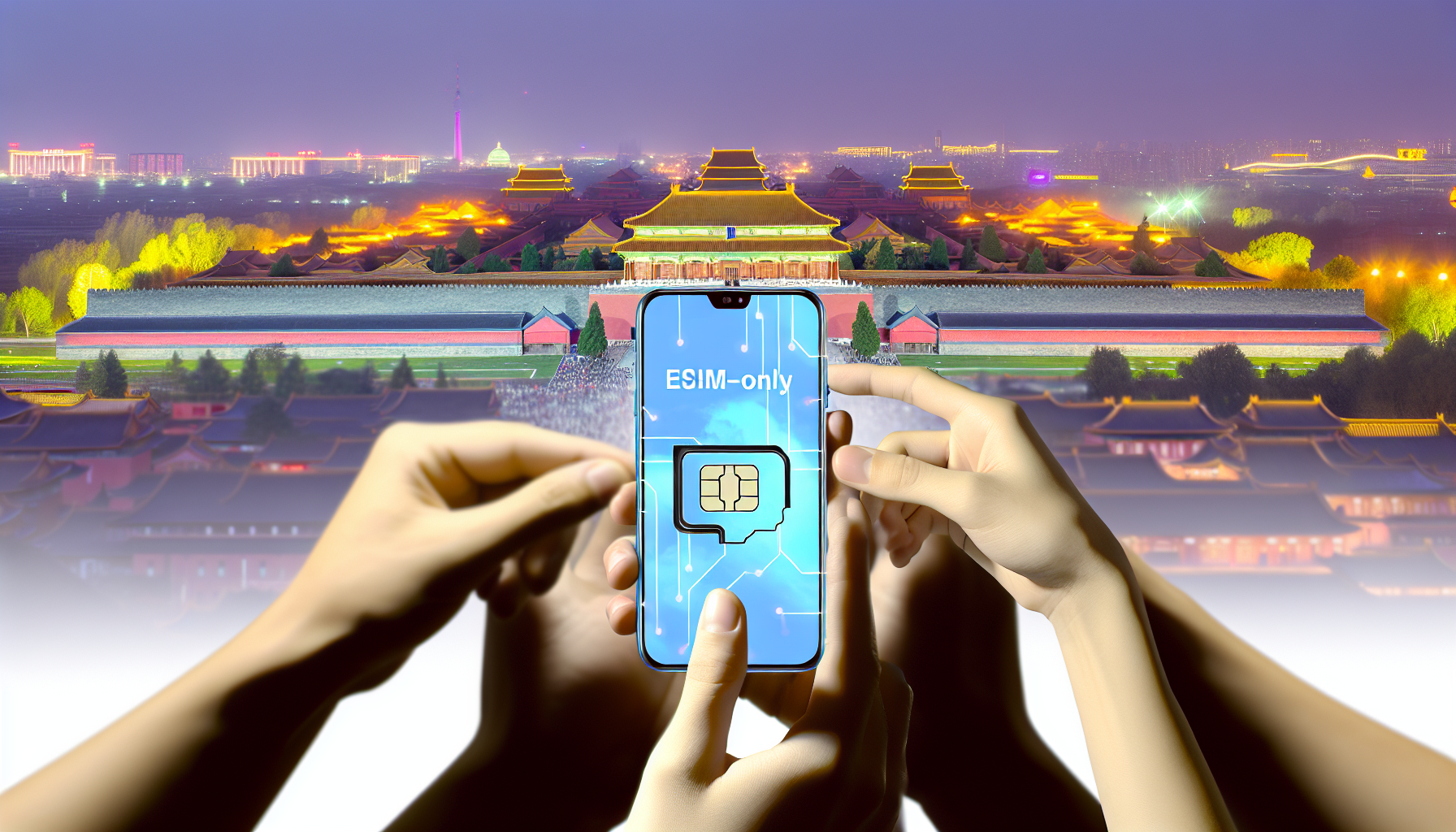
AI-generated image
Apple’s latest model, the iPhone Air, officially went on sale across the Chinese mainland on Wednesday, about a month later than initially expected.
The new model marks Apple’s first smartphone in China to feature eSIM-only connectivity, signaling a major step toward the transition away from physical SIM cards in one of the world’s most important mobile markets.
According to Apple’s official website for China, the iPhone Air began pre-orders on October 17, with the first batch of buyers collecting their devices at Apple Stores nationwide or receiving courier deliveries on Wednesday. Outside several Apple stores in Beijing, long lines formed as eager customers arrived to pick up the new device, the Global Timesreported.
Apple’s website now shows that orders placed today are no longer eligible for in-store pickup, with estimated delivery dates ranging from October 30 to November 6.
The iPhone Air is available in Space Black, Cloud White, Light Gold, and Sky Blue, offering storage options of 256GB, 512GB, and 1TB, with a starting price of 7,999 yuan (USD 1,100).
Notably, the model does not support physical SIM cards, making it the first Apple handset sold in mainland China to rely entirely on embedded SIM (eSIM) technology. The move aligns with Apple’s broader global strategy, as recent iPhone models in the United States and select international markets have already shifted to eSIM-only formats.
Apple confirmed that China’s three major telecom operators — China Mobile, China Telecom, and China Unicom — now fully support eSIM services for the new device. Users can activate the service by visiting an operator’s offline service center with valid identification. Each iPhone Air supports up to two eSIMs, allowing dual-line usage without the need for a physical SIM slot.
As with previous Apple models, all iPhones purchased through apple.com in China are unlocked and not tied to any carrier. This ensures that customers remain free to choose their preferred operator and plan. Once activated, the phone remains carrier-unlocked and compatible with any network that supports iPhone service.
On the same day that pre-orders opened, the country’s three major telecom carriers — China Mobile, China Unicom, and China Telecom — published step-by-step guidelines for eSIM activation, outlining how users can transfer existing numbers or open new lines using the new digital SIM format.
On Chinese social media platform Weibo, many early adopters shared their experiences activating eSIMs at carrier outlets, describing the process as “simple” and “efficient.” Some reported that it took less than ten minutes to complete the registration and activation process.
The launch follows official approval for commercial trials of eSIM services, granted to the three operators on October 13, 2025, according to CCTV News. Previously, eSIM applications in China had been limited to smartwatches, tablets, and IoT devices. The inclusion of smartphones in the approved category marks a milestone in the country’s mobile communications landscape.
Apple’s entry into the eSIM segment in China has accelerated similar moves among domestic smartphone makers.

According to chinastarmarket.cn, OPPO is preparing to launch its upcoming Find X9 Pro handset, which will also feature eSIM support. Meanwhile, Huawei is currently conducting internal tests on eSIM-enabled smartphones, and Vivois reportedly developing models compatible with the new technology.
Industry analysts note that many Chinese smartphone manufacturers have already rolled out eSIM-compatible devices in overseas markets, including Europe and Southeast Asia, where eSIM adoption is more mature. As a result, the transition for domestic launches is expected to be relatively smooth.
“The technology itself is mature — what’s new is that China’s regulatory and commercial environment is finally ready for mass-market deployment,” one industry insider told chinastarmarket.cn. “Apple’s release of an eSIM-only iPhone could serve as a key catalyst for wider adoption across the domestic smartphone industry.”
The commercial rollout of eSIM services represents a significant evolution for China’s telecom ecosystem. Unlike traditional SIM cards that require physical swapping, eSIMs can be remotely activated, managed, and switched between carriers. This allows users to change networks without needing a physical SIM card, while offering added convenience for international travelers and multi-line users.
Analysts say the shift also supports the growing convergence between hardware innovation and digital infrastructure, potentially paving the way for broader integration with emerging technologies such as Internet of Things (IoT) devices and wearable ecosystems.
For Apple, the launch of the iPhone Air in mainland China underscores its ongoing commitment to the local market — even amid rising competition from domestic brands like Huawei and Xiaomi. Despite slowing smartphone demand globally, Apple continues to hold a strong premium position in China, where the brand remains synonymous with quality and innovation.
With the iPhone Air’s debut, China officially joins the ranks of countries adopting eSIM-only smartphones, marking an important step toward a fully digital and flexible mobile communications future.
As the rollout expands and eSIM-supported models from both global and domestic brands hit the shelves, analysts expect 2026 to be the year when China’s mobile industry fully embraces the eSIM era, reshaping how consumers connect — one digital SIM at a time.
更多精彩内容,关注钛媒体微信号(ID:taimeiti),或者下载钛媒体App

